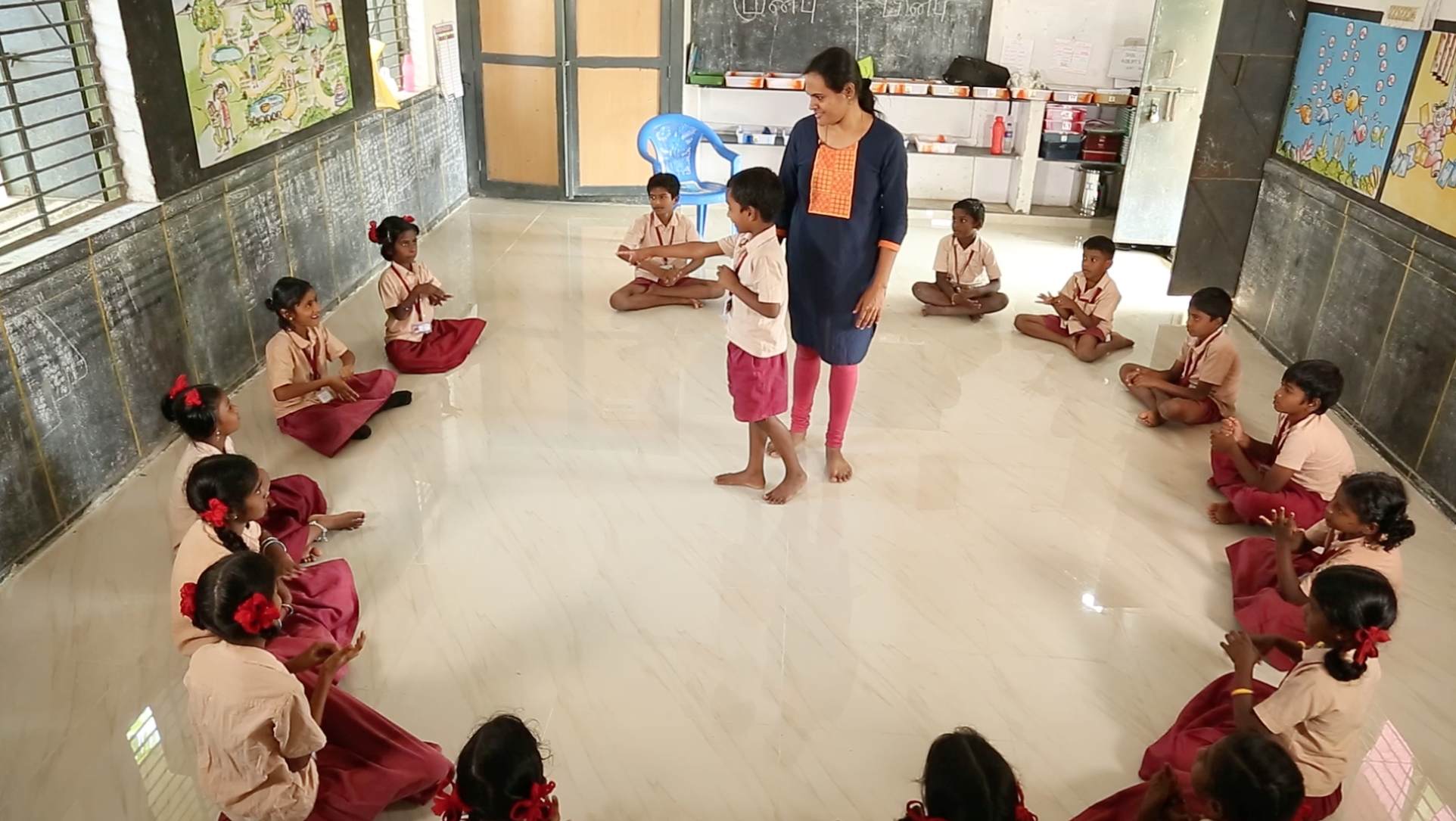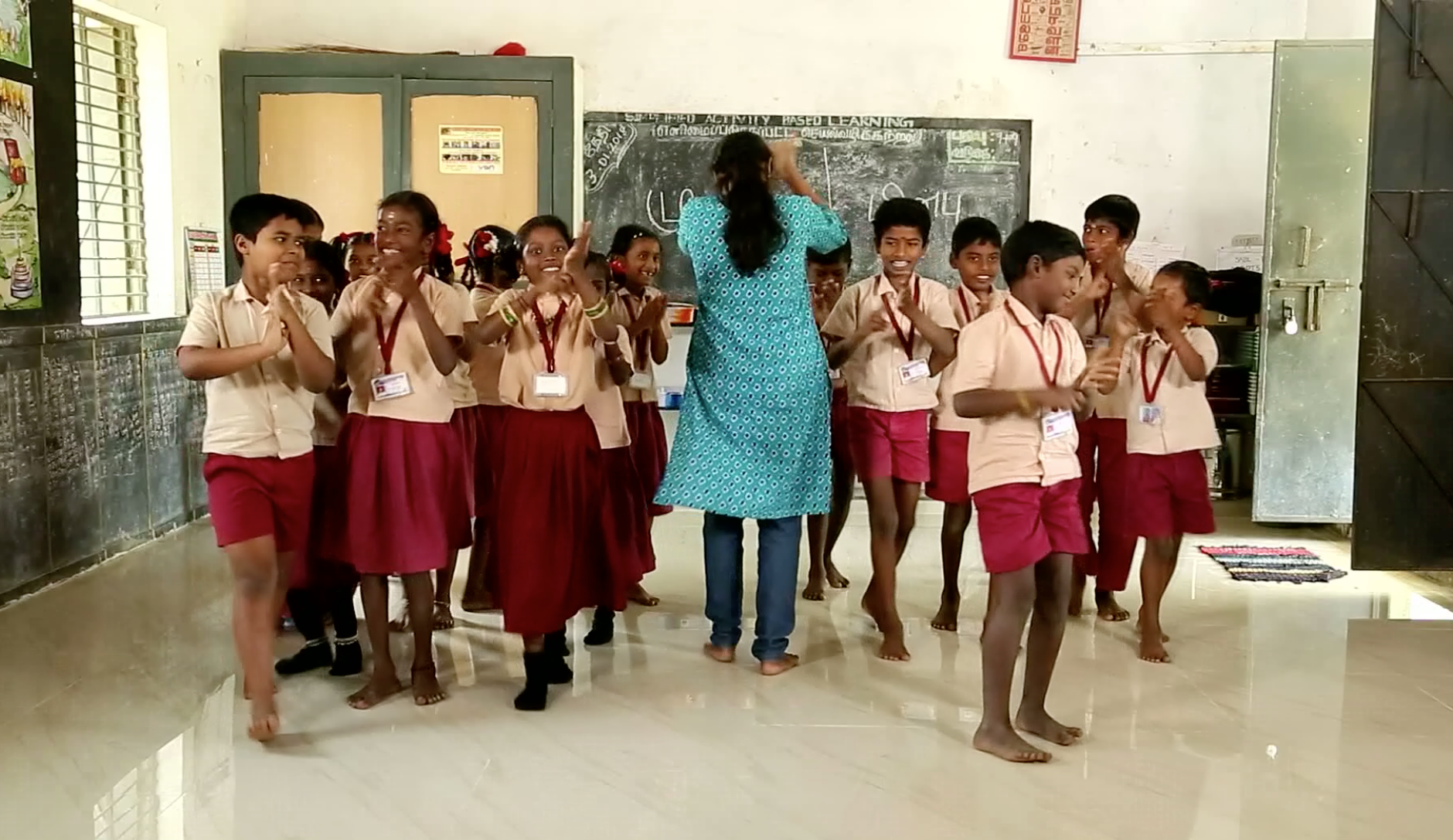Hygiene with Chhota Bheem: A Playful Curriculum Increases Handwashing and Sanitation Knowledge, Attitudes, and Behaviors Among Primary School Children
Thursday, August 30, 2018

You may ask yourself, what do a poop monster, clean wizard, and boy with super strength have in common? The answer? They are each a part of an intricate story world in which primary school children use handwashing and toilet use spells to cast an evil germ wizard away from their communities. The Engagement Lab, in partnership with the Mary Anne Charity Trust (MACT), the Indian Red Cross Society, the School Education Department in Tamil Nadu, and a Working Group of several NGOs dedicated to improving children’s health and wellbeing, co-designed Hygiene with Chhota Bheem with children in Tamil Nadu.
Chhota Bheem is a popular children’s television show in India. The Engagement Lab partnered with Green Gold Animation, the studio that makes Chhota Bheem, to bring the popular characters into a fun, interactive curriculum. Each lesson includes a Chhota Bheem story (either in video or storybook form), activities, games, and songs, and ends with a weekly challenge for children to complete to defeat the germ wizard, such as explaining handwashing times to a friend or sibling, or showing family how to make a soapy bottle at home for handwashing.
In Hygiene with Chhota Bheem, a germ wizard spreads filth and germs by hypnotizing people to practice open defecation and not wash their hands with soap at critical times, like before eating and after defecation. A clean wizard, who is in constant battle with the germ wizard, teaches children activities, games, and songs, or “spells,” that help explain how and when to wash hands with soap and use toilets, and why it’s important to do so. The characters of Chhota Bheem want to help the clean wizard cast the germ wizard away from all villages in India. But to do this successfully, they need help from everyone to wash their hands with soap and use toilets.

Hygiene with Chhota Bheem was evaluated in a pilot study with 30 government primary schools in Thiruvallur district of Tamil Nadu, India. Surveys with children and rapid observations of handwashing, both before and immediately after the curriculum, were used to measure impact.
Findings indicate that children who participated in the curriculum had a significantly higher improvement in knowledge of how and when to wash hands with soap and use toilets than children in the control group. Additionally, the study showed a positive change in attitudes toward handwashing and toilet use, and an increase in the proportion of children who reported advocating for handwashing and toilet use with their peers and family members. Finally, there was a positive change in observed handwashing with soap at school before eating and after toilet use, and an increase in self-reported toilet use. These findings are all extremely encouraging as we consider how best to scale the curriculum beyond the study population.
Next year, the Engagement Lab will talk to the teachers who participated in the study to better understand barriers to using the curriculum in school and we will work with a variety of NGOs and governmental organizations to make the curriculum useful to a variety of stakeholders. Finally, we will continue to develop levels in the digital game, translate it into Hindi (it is currently in English and Tamil), and begin to promote its use across India.
To keep up with the latest news on Hygiene with Chhota Bheem, join the Engagement Lab’s newsletter. To view and download all curriculum materials, visit our project page.